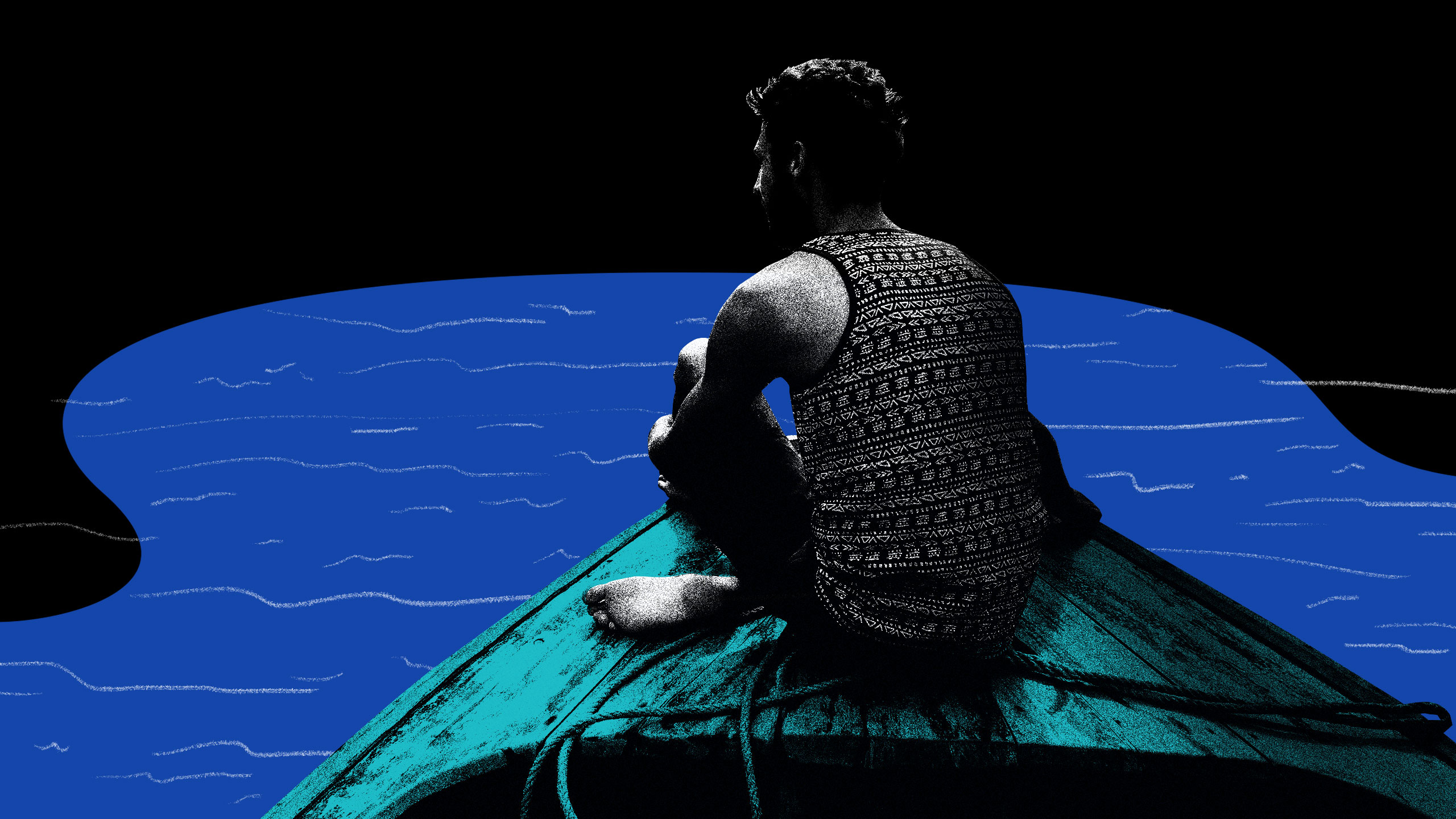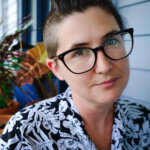Content warning: This story discusses suicide.
My life is comfortable these days. I live with a loving husband and an exorbitantly adorable kid. My mom and I are on good terms. I get paid to do what I love, and people leave me alone, which is how I like it; I can tell you the name of every weed in my front yard and whether they have medicinal properties (answer: no, because our landlord keeps spraying weed killer on them), but I don’t know my next-door neighbours’ names.
It never entirely leaves my mind, as I walk through my comfortable, weed-naming middle age, that trans people are dying—or that they die, very often, of despair. A new report from the Center for American Progress finds that “minority stress,” the unique mental health burden of dealing with discrimination and interpersonal or institutional hatred, has left trans people twice as likely to experience chronic depression as cisgender people, and four times more likely to attempt suicide. In her recent essay on suicidal ideation, Canadian writer Niko Stratis points to statistics from the Canadian Mental Health Association, that found “77 percent of trans respondents had seriously considered suicide, and 45 percent had attempted suicide.”
I’ve had my own ideations, my own attempts, but I’m okay now. I’m even well. It’s just that all the people who aren’t okay keep moving around under my skin—whether they’re people I’ve lost or teenage strangers contemplating suicide because their state has banned puberty blockers. My happiness feels profoundly unearned; I have so much more than so many people, and it would take exceptional narcissism to conclude I deserve it more than they do. I wasn’t prepared to be one of the lucky ones. I’m not sure how to forgive myself for surviving.
“I’ve lost three friends to suicide. Two were harassed to death,” says Violet, a non-binary trans woman who requested we withold her location.
Violet’s friend group has been the target of online harassment by an anti-trans message board; the harassment was so intense that she describes her lost friends as having been “essentially murdered.” (Out of respect for her fear that this article would spark further harassment, I’m naming neither the message board nor Violet.) In addition to facing abuse herself, she’s haunted by guilt over her friends.
“One of them died in an extremely horrible way,” she says. “They messaged me the night before trying to find a place to sleep. Because we live in different cities there was nothing I could do, and I had to go to sleep for work the next day, promising I’d talk to them in the morning. Three days or so later I found out they were dead.”
To an outsider, the guilt seems misplaced. Violet could not have retroactively made the choice to live in a different area. She wasn’t the only person her friend reached out to that night. Most importantly, she did not commit the harassment that killed them, and she had no power to stop it—if she did, she wouldn’t be getting harassed herself.
Yet guilt is a common feature of trauma. “Grief is a complicated set of emotions and experiences,” says Sand Chang, a non-binary clinical psychologist and trauma therapist. “There is often a sense of loss followed by trying to make sense of how or why something so horrible could happen. It’s hard to reckon with things that are beyond our individual control. Sometimes taking on a sense of responsibility creates the illusion that we have control, and that’s where guilt can come in.”
“People close to me have lost people close to them, and I wonder how long until the spectre reaches me.”
Obsessing over a traumatic experience, trying to identify points when you could have done or said something to change the outcome, is one way survivors try to regain a sense of control. This also happens during communal losses—which being trans frequently entails.
“I haven’t lost anyone close to me,” says Lydia, who is also a non-binary trans woman from the Pacific Northwest, “but people who are close to me have lost people close to them, and I wonder how long until the spectre reaches me.” (I’ve also changed Lydia’s name to protect her privacy.)
Like many trans people, Lydia’s life is possible because of an extended network of queer and trans friends. “We rely on each other,” she writes via email, “to talk through rough shit, soothe dysphoria, to mutually flirt our way to self-love, navigate unsafe family and workplaces, borrow money and so forth. And when someone dies, it reverberates through the community like vibrations in a web.”
Those vibrations are felt even after the death of a stranger. The suicide of trans teenager Leelah Alcorn in 2014, for example, happened at a vulnerable moment in Lydia’s transition and left her grappling with suicidal ideation. Both of the women I spoke to mentioned dealing with those thoughts, and exposure to news of suicide and self-harm can compound them. “The suicides of others intensifies the urge by making my own death seem more vivid, more possible,” Lydia tells me. “It’s like, ‘Oh, I could do that.’”
Over time, cumulative and communal trauma can harden into helplessness. Violet used to react emotionally to every news story she read about a trans woman being murdered, she says, but that feeling is now “background radiation.”
“No matter what I try I won’t be able to change a single goddamn thing about it,” she writes. “Working, keeping my body at some level of working order and keeping my thoughts from racing takes just about everything out of me, and I feel guilty as fuck about that.”
There is no logical reason for Violet, or anyone else, to feel guilty about surviving in a world that has actively tried to kill her; no reason to be ashamed of violence we did not participate in and have not caused. Yet the compulsion is deeply human.
Scholar of bioethics Simona Giordano has written movingly on trans shame which, she tells me, comes in more than one flavour—the direct shame one might feel when ostracized or abused, and the shame that accumulates from simply living in a world where injustice happens. To explain this second shame, Giordano cited Holocaust survivor Primo Levi’s account of the Russian soldiers who liberated Auschwitz, who, he writes, “seemed oppressed not only by compassion but by a confused restraint.”
“The Russian soldiers were not being abused or derided or humiliated,” Giordano says. “Neither were they feeling shame because they had done something wrong…. The shame that the Russian soldiers felt was the shame of the observer.”
People are ashamed, Giordano says, of “sharing the same humanity” of oppressors and people who commit horrific acts. Trans people are in a particularly vulnerable position because they often experience both kinds of shame—they are targeted for abuse themselves, and they also witness it being done to others.
“I felt a lot of survivor’s guilt. A feeling like, Why me?”
Simply living with oppression, says Chang, induces a sense of powerlessness and therefore guilt. “Many people feel powerless over systems of oppression—white supremacy, transphobia, homophobia—and because of this sense of powerlessness don’t know where to put their anger, hurt or rage,” they tell me. “And unfortunately sometimes it gets directed inward or at one’s own communities.”
Being aware of injustice is not a bad thing, and guilt is not the same as acknowledging privilege. As random as my good fortune feels, I can name many outside factors (my whiteness, my mostly middle-class background and the fact that I’m not transfeminine) that have worked in my favour. Yet traumatic guilt is not the product of an easy life. It affects people who experience a direct impact of violence. It affects sectors of the trans community, like Black trans women, who are at greater risk. Actress and producer Laverne Cox, for instance, has spoken at length and many times about her guilt surrounding the murders of other women: “The month I was on the cover of Time magazine, five trans women were killed,” Cox once told The Cut. “So I felt a lot of survivor’s guilt. A feeling like, Why me?”
Whereas awareness of injustice can be motivating and provide a basis for action, shame and guilt paralyze people and keeps them convinced of their own powerlessness. Drawing that distinction is important, because experts say that one of the best ways to cope with traumatic guilt is to find some way to assist other people—to shift the response away from “why me” and toward “you too.”
Psychology professor Anneliese Singh has written that, according to her research, altruism is consistently helpful in building resilience among queer and trans people; that finding applies across different racial and age demographics. It works whether the altruism is on a large or small scale: “In my research, the finding of helping others spanned a wide variety of helping—from working on specific social justice community causes, like working against animal cruelty and oppression, to helping out a friend or family member.”
Providing service to others is a way to make one’s own survival a benefit to the community. The active practice of solidarity is very different from rote hand-wringing over one’s own privileges. Nor is it the same as codependency—nearly everyone I interviewed mentioned the burnout that happens when someone tries to become solely responsible for another human being’s survival.
“Contrary to popular belief, resilience isn’t simply an individual trait,” Chang says. “It’s also about relying on the collective resilience within one’s community. This is especially important for people who experience trauma due to marginalization. There are going to be days when a person might not feel they have it in them to survive, but if you bring in the support and resources of social community, it’s possible.”
“I am engaged with shame, not despite my comfort, but as a necessary part of it.”
Potentially lethal experiences like homelessness or a suicidal crisis require a whole support network to survive. One person cannot do the work of an entire mutual aid organization or support group. That said, plenty of mutual aid organizations and support groups started because one person recognized they were necessary. The more marginalized people devote their energies into creating networks of support for each other, the less tragedy, trauma and grief there will be.
In fact, Giordano says, we should probably assign responsibility a lot more broadly than we typically do. In the year 2021, the “shame of the observer” is carried by many, many people who are not trans: “The way trans identities are validated and respected is not a problem for trans people but for us all,” Giordano says. “We are all observers at the very least. We are all witnesses.” Shame, she writes, is a “demanding emotion. It asks all of us to be engaged.”
I am engaged with shame, not despite my comfort, but as a necessary part of it. My life takes place in the context of other lives; being responsible means being able to hold all those lives in mind when I make my decisions, rather than thinking only of myself. The weight of the dead will always be carried by those who survive. That weight only feels overwhelming because so many people believe themselves to be completely unaccountable, ignore it or add to it while believing it’s not their problem. I don’t have to destroy myself to gain absolution for surviving. No one does. What we have to do is build a world where survival is not exceptional or lucky, where no one carries the weight alone.


 Why you can trust Xtra
Why you can trust Xtra


